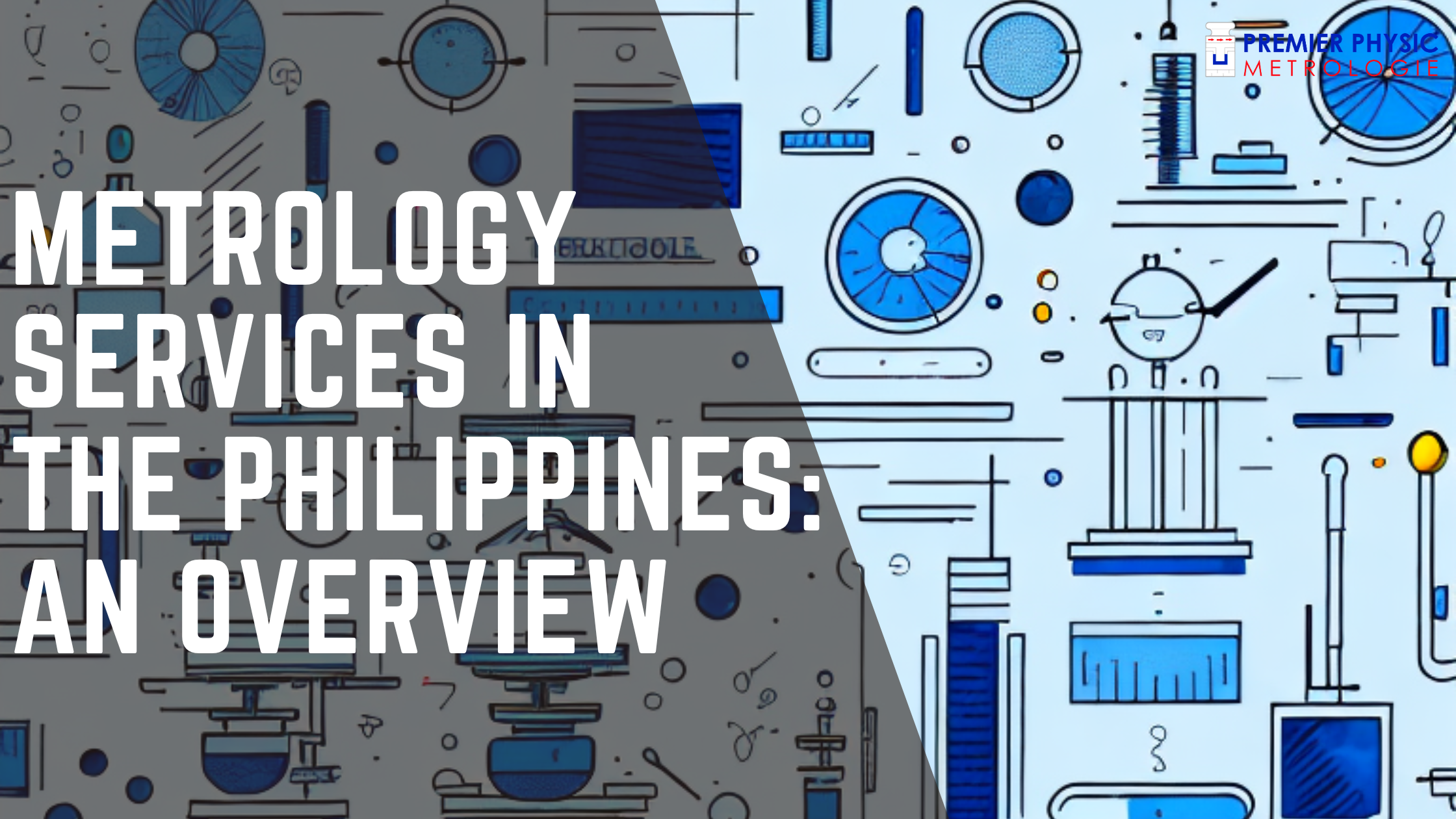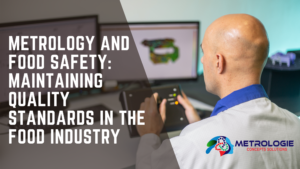Metrology services play a crucial role in ensuring accuracy and precision in measurements across various industries. In the Philippines, the demand for reliable metrology services has been steadily increasing. This article provides an overview of metrology services in the Philippines, including the importance of metrology, the evolution of metrology services in the country, key metrology services available, the role of the government in regulating metrology services, and the challenges and opportunities in the Philippine metrology sector.
Understanding Metrology: A Brief Introduction
Metrology is the science of measurement. It involves the study and development of accurate measurement standards and methods. The field of metrology encompasses various disciplines, including electrical, mechanical, and chemical metrology. Accurate and precise measurements are essential in industries such as manufacturing, engineering, healthcare, and telecommunications.
When it comes to manufacturing, metrology plays a crucial role in ensuring the quality and reliability of products. Precise measurements are necessary to meet quality standards and ensure product consistency. In industries where precision is paramount, such as aerospace and automotive, metrology helps maintain strict tolerances and ensures that components fit together perfectly. This level of accuracy not only enhances product performance but also improves customer satisfaction.
In the healthcare sector, metrology is equally important. Accurate measurements are critical in diagnostic tests, where even the smallest discrepancy can have significant consequences. From blood tests to medical imaging, metrology ensures that healthcare professionals can rely on precise measurements to make accurate diagnoses and provide appropriate treatments. Additionally, in the administration of medications, dosage accuracy is crucial to ensure patient safety and avoid potential complications.
Metrology also plays a significant role in international trade. It provides a common basis for measurement standards globally, ensuring fair and accurate transactions. By establishing uniform measurement systems, metrology facilitates trade between countries and helps prevent disputes arising from measurement discrepancies. This harmonization of measurement standards promotes consistency and trust in international commerce.
The Basic Principles of Metrology
Metrology relies on specific fundamental principles to ensure accurate and reliable measurements. One of these principles is traceability, which ensures that measurements are traceable to recognized standards. Traceability is achieved through a chain of comparisons, linking the measurements to national or international standards. This process allows for the validation and verification of measurement results, providing confidence in their accuracy and reliability.
Another crucial principle in metrology is uncertainty evaluation. It quantifies the potential errors or uncertainties in measurements. Uncertainty evaluation takes into account various factors that can affect measurement results, such as equipment limitations, environmental conditions, and human factors. By understanding and quantifying these uncertainties, metrologists can provide a range of values within which the true measurement is likely to lie, ensuring that decision-makers have the necessary information to make informed choices.
Calibration is another fundamental principle emphasized in metrology. Calibration involves comparing measurement equipment to known standards to ensure accuracy. By periodically calibrating measurement instruments, metrologists can detect any deviations or drift in their performance and make necessary adjustments. Calibration provides a means to maintain the traceability and accuracy of measurement instruments, ensuring reliable and consistent results over time.
In conclusion, metrology is an indispensable field that underpins various industries and ensures accurate and reliable measurements. From manufacturing to healthcare to international trade, metrology plays a vital role in maintaining quality, safety, and consistency. By adhering to fundamental principles such as traceability, uncertainty evaluation, and calibration, metrologists contribute to the advancement and success of these industries, ultimately benefiting society as a whole.
The Evolution of Metrology Services in the Philippines
Metrology services in the Philippines have evolved over the years to meet the increasing demands of various industries. To understand the current state of metrology services in the country, it is essential to explore its historical background and examine the recent developments and innovations in Philippine metrology.
Historical Background of Metrology in the Philippines
The history of metrology in the Philippines dates back to the Spanish colonial period. During this time, efforts were made to establish standard units of measurement. The Spanish authorities recognized the need for consistent and accurate measurements to facilitate trade and commerce. They introduced various measurement units, such as the vara and the cavan, to standardize transactions.
However, it was not until the American colonial era that significant progress was made in metrology. The creation of the National Bureau of Standards in the early 20th century marked a milestone in the development of metrology in the country. The bureau was tasked with promoting uniformity in measurements and ensuring fair trade practices.
Under American influence, the Philippines adopted the metric system in 1901. This transition to the international standard of measurement brought about significant changes in various sectors, including manufacturing, construction, and trade. The metric system provided a common language for measurements, enabling seamless communication and standardization across industries.
Throughout the 20th century, the National Bureau of Standards expanded its scope and capabilities. It established laboratories and testing facilities to support industries in ensuring accurate measurements. The bureau also played a crucial role in the calibration and certification of measuring instruments, further enhancing the reliability of metrology services in the country.
Modern Developments and Innovations in Philippine Metrology
In recent years, the Philippine metrology sector has witnessed notable developments and innovations. These advancements have been driven by the increasing demand for precise and reliable measurements in various industries, including manufacturing, healthcare, and environmental monitoring.
One of the significant developments in Philippine metrology is the establishment of modern metrology laboratories equipped with state-of-the-art measurement instruments and technologies. These laboratories are equipped with advanced equipment such as high-precision balances, spectrophotometers, and coordinate measuring machines. The availability of such advanced equipment enables accurate and traceable measurements, ensuring the quality and safety of products and services.
Furthermore, the Philippine metrology sector has embraced the adoption of international standards and best practices. The country has aligned its metrology practices with international organizations such as the International Organization for Standardization (ISO) and the International Bureau of Weights and Measures (BIPM). This alignment ensures that Philippine metrology services adhere to globally recognized standards, promoting consistency and compatibility in measurements.
Collaborations with international metrology organizations have also facilitated knowledge exchange and technological advancements in the Philippine metrology sector. Through partnerships and participation in international conferences and workshops, metrologists in the country have gained insights into the latest measurement techniques and technologies. This exchange of knowledge has contributed to the continuous improvement of metrology services in the Philippines.
Moreover, the Philippine government has recognized the importance of metrology in supporting economic growth and development. It has invested in the training and development of metrologists, ensuring a skilled workforce capable of delivering accurate and reliable measurements. The government has also established regulatory frameworks and accreditation systems to ensure the competence and integrity of metrology service providers.
In conclusion, the evolution of metrology services in the Philippines has been shaped by historical developments and recent advancements. From the establishment of standard units during the Spanish colonial period to the adoption of international standards and the establishment of modern metrology laboratories, the Philippine metrology sector has come a long way. The continuous improvements and innovations in metrology services contribute to the growth and competitiveness of various industries in the country.
Key Metrology Services Available in the Philippines
The Philippines offers a wide range of metrology services to cater to the diverse needs of industries. These services cover calibration, measurement and testing, and inspection and quality control.
Calibration Services
Calibration services ensure that measurement instruments meet specified accuracy and performance requirements. These services involve comparing the measurements of an instrument to the measurements of a reference standard. Calibration helps detect and correct any inaccuracies or deviations in measurement instruments, ensuring reliable and accurate results.
Measurement and Testing Services
Measurement and testing services involve the accurate measurement and evaluation of various physical properties, such as length, mass, temperature, and electrical parameters. These services are crucial in validating the quality and functionality of products, ensuring compliance with industry standards, and supporting research and development activities.
Inspection and Quality Control Services
Inspection and quality control services aim to ensure that manufactured products meet the required specifications and quality standards. These services involve the assessment of product quality, identification of defects and non-compliance, and the implementation of corrective actions. Inspection and quality control services play a crucial role in maintaining product integrity and customer satisfaction.
The Role of Government in Regulating Metrology Services
The government in the Philippines plays a significant role in regulating metrology services to ensure accuracy, consistency, and fairness in measurements. The country has implemented the Metrology Act to establish a legal framework for metrology and to protect consumers and businesses.
The Philippine’s Metrology Act
The Metrology Act of the Philippines provides the legal basis for the establishment of the Philippine National Metrology Laboratory (PNML) and the regulation of metrology services. The Act aims to ensure the traceability of measurements, promote fair trade, and protect the welfare of consumers. It also provides guidelines for the accreditation of metrology laboratories and the certification of measurement equipment.
Government Agencies Involved in Metrology
Several government agencies are responsible for the regulation and oversight of metrology services in the Philippines. The Department of Trade and Industry (DTI), through the Bureau of Philippine Standards (BPS), plays a vital role in formulating and implementing metrological policies and standards. The Philippine Accreditation Bureau (PAB) is responsible for accrediting metrology laboratories, ensuring their competence and adherence to international standards. The National Metrology Laboratory (PNML) is the primary agency responsible for providing metrology services and maintaining measurement standards in the Philippines.
Challenges and Opportunities in the Philippine Metrology Sector
While the Philippine metrology sector has made significant progress, it still faces various challenges. Understanding these challenges is crucial in capitalizing on opportunities for growth and improvement.
Current Challenges in the Metrology Industry
One of the main challenges in the metrology industry is the lack of awareness and understanding of the importance of accurate and reliable measurements. This often results in the use of substandard measurement instruments and methodologies, leading to inaccurate results and potential risks. Limited funding and resources also pose challenges in maintaining and upgrading metrology facilities and equipment. Furthermore, keeping up with rapidly evolving technologies and international standards requires continuous training and capacity-building efforts.
Future Opportunities and Growth Prospects
Despite the challenges, there are significant opportunities for the Philippine metrology sector. The growing demand for metrology services from various industries presents avenues for expansion and diversification. The effective implementation of the Metrology Act and international collaborations can enhance the credibility and competitiveness of Philippine metrology services. Embracing new technologies, such as automation and digitalization, can also improve the efficiency and accuracy of metrology processes.
In conclusion, metrology services in the Philippines play a vital role in ensuring accuracy and precision in measurements across various industries. Understanding the importance of metrology, the historical background, and recent developments in Philippine metrology, as well as the key metrology services available and the role of the government in regulating metrology, provides a comprehensive overview of the sector. Despite the challenges, the Philippine metrology sector has significant opportunities for growth and improvement, which can be realized through continuous innovation, collaboration, and awareness.




